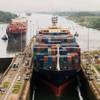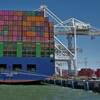Rotterdam Port Bunkerers Join to Seek ISO 8217
The bunker sector has entered into close collaboration to better guarantee the quality and quantity of bunkering supplied in the port of Rotterdam.
To that aim, Hendrik Muilerman on behalf of the Netherlands Petroleum Industry Association (VNPI), Johan van der Steen from the Dutch Organisation for the Energy Industry (NOVE), Boudewijn Siemons on behalf of the Association of Independent Tank Storage Companies (Votob) and Hans Smits, CEO of the Port of Rotterdam Authority, have signed a joint venture aimed to make the bunker oil supplied in the port of Rotterdam comply not only with the legal requirements under Marpol (Maritime Pollution Convention) Annex VI, but also with the ISO 8217 standard.
The bunkerers wants it to be clear which substances (in certain concentrations) are undesirable in bunker oil and it will make every effort to prevent such substances from getting into bunker oil. They aim at further transparency of the bunker oil chain by entering into further agreements about traceability and sampling systems will also be investigated.
It is still the case that quantities supplied - even large deliveries valued at more than €7 million - are determined in a ‘traditional’, less precise manner.
The largest amounts of bunker oil are supplied to container ships which sail on scheduled services and remain in the ports for increasingly shorter periods. This means that bunkering also has to take place increasingly faster. It is therefore in everyone’s interest for the bunker supply process to run as smoothly as possible, and with such factors in mind the consortium plans to attain the ISO accreditation.
In the picture: Hendrik Muilerman on behalf of the Netherlands Petroleum Industry Association (VNPI), Johan van der Steen from the Dutch Organisation for the Energy Industry (NOVE), Boudewijn Siemons on behalf of the Association of Independent Tank Storage Companies (Votob) and Hans Smits, CEO of the Port of Rotterdam Authority. (The lady is not named).














